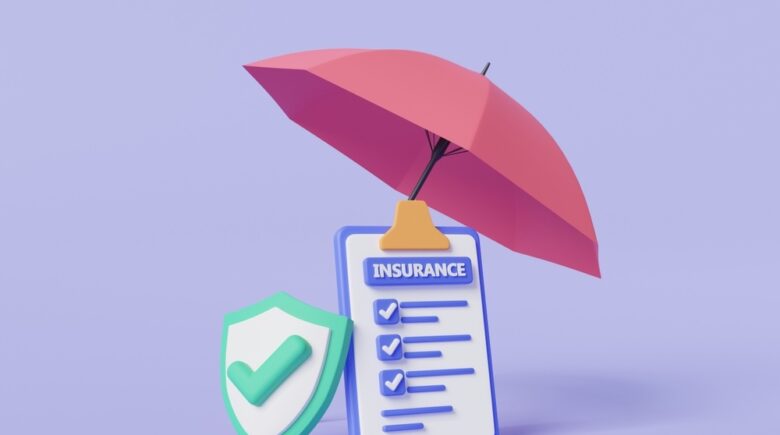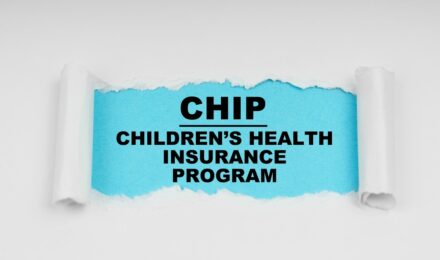Contents
- 1 What Are Qualifying Life Events?
- 2 Types of Qualifying Life Events
- 3 Documentation Requirements For Qualifying Life Events
- 4 Important Timeframes and Deadlines
- 5 Impact on Health Insurance Choices
- 6 Special Considerations for 2024
- 7 Tips for Managing Your QLE
- 8 Common Mistakes to Avoid
- 9 Conclusion
- 10 Resources and Additional Information
A Qualifying Life Event is a significant change in your life circumstances. Understanding when you can change your health insurance coverage is crucial for maintaining appropriate healthcare protection for you and your family. While most people are familiar with the annual Open Enrollment Period, fewer understand the concept of a Qualifying Life Event (QLE) – circumstances that allow you to enroll in or modify your health insurance coverage outside the standard enrollment window.
What Are Qualifying Life Events?
A Qualifying Life Event is a significant change in your life circumstances that makes you eligible for a Special Enrollment Period (SEP). During this period, you can enroll in health insurance or change your existing coverage, even if it’s outside the annual Open Enrollment Period. According to the Centers for Medicare & Medicaid Services (CMS), you typically have 60 days following a QLE to enroll in a new health plan or modify your existing coverage.
Types of Qualifying Life Events
Changes in Household
- Marriage or Divorce: Getting married allows you to add your spouse to your existing plan or choose a new plan together. Similarly, divorce may require you to seek individual coverage.
- Birth or Adoption: Having a baby or adopting a child automatically qualifies you for a Special Enrollment Period. Coverage can be backdated to the date of birth or adoption.
- Death in the Family: Losing a family member, especially if they were the primary insurance policyholder, qualifies as a QLE.
Changes in Residence
- Moving to a New ZIP Code: Relocating to an area with different health plan options qualifies as a QLE.
- Students Moving To/From School: College students moving to or from the location of their school may qualify for special enrollment.
- Moving To/From a Shelter or Transitional Housing: These transitions can trigger eligibility for a Special Enrollment Period.
Changes in Employment and Income
- Losing Job-Based Coverage: Whether through termination, resignation, or reduction in work hours that affects eligibility.
- Starting a New Job: Becoming eligible for new employer-sponsored coverage.
- Changes in Income: Significant income changes that affect eligibility for marketplace subsidies or Medicaid.
- Gaining or Losing Medicare Eligibility: Turning 65 or qualifying for Medicare through disability.
Other Qualifying Events
- Gaining U.S. Citizenship: Becoming a U.S. citizen or gaining lawful presence in the U.S.
- Leaving Incarceration: Being released from incarceration.
- Changes in Marketplace Plan Status: Your insurance company discontinuing your current plan.
Documentation Requirements For Qualifying Life Events
When applying for coverage during a Special Enrollment Period, you must provide documentation to verify your QLE. According to HealthCare.gov, common documents include:
- Marriage: Marriage certificate
- Birth: Birth certificate or hospital records
- Loss of coverage: Letter from insurance company or employer
- Move: Utility bills, lease agreement, or mortgage documents
- Income change: Pay stubs, tax returns, or letter from employer
Important Timeframes and Deadlines
The Special Enrollment Period typically lasts 60 days from the date of the qualifying event. However, some important considerations include:
- You can report a QLE up to 60 days before the event if you know you’ll lose coverage
- Coverage start dates vary depending on the type of QLE and when you enroll
- Missing the 60-day window means waiting until the next Open Enrollment Period, unless you experience another QLE
Impact on Health Insurance Choices
When you experience a QLE, you generally have several options:
- Marketplace Plans: You can enroll in or change Marketplace plans during your Special Enrollment Period
- Employer-Sponsored Coverage: If available, you may be able to enroll in your employer’s plan
- COBRA Coverage: If losing job-based coverage, you might be eligible for COBRA continuation coverage
- Medicare: If becoming eligible, you can enroll in Medicare parts A, B, C, and D
Special Considerations for 2024
The Department of Health and Human Services (HHS) has implemented several changes affecting QLEs and Special Enrollment Periods:
- Enhanced verification processes for Special Enrollment Periods
- Extended enrollment windows for certain qualifying events
- Additional flexibility for consumers affected by public health emergencies
Tips for Managing Your QLE
- Act Promptly: Don’t wait until the end of your 60-day Special Enrollment Period to take action
- Gather Documentation: Collect required documents as soon as possible
- Compare Plans: Take time to evaluate all available options
- Consider Cost Changes: Factor in premium changes, deductibles, and potential subsidies
- Seek Assistance: Contact your state’s health insurance marketplace or a licensed insurance agent for help
Common Mistakes to Avoid
- Missing the 60-day deadline
- Failing to gather proper documentation
- Not reporting income changes that could affect subsidies
- Assuming all life changes qualify as QLEs
- Waiting too long to begin the enrollment process
Conclusion
Understanding qualifying life event for insurance is crucial for maintaining appropriate health insurance coverage throughout life’s changes. Whether you’re experiencing changes in your household, employment, residence, or other significant life events, knowing your rights and responsibilities regarding health insurance enrollment can help ensure you and your family maintain necessary coverage.
Remember that each QLE has specific rules and requirements, and it’s essential to act promptly when experiencing a qualifying event. If you’re unsure whether your situation qualifies, contact your state’s health insurance marketplace or a licensed insurance professional for guidance.
Resources and Additional Information
For more detailed information about Qualifying Life Events and Special Enrollment Periods, consult these authoritative sources:
- The Centers for Medicare & Medicaid Services (CMS) Special Enrollment Period guidelines at www.cms.gov
- The official HealthCare.gov resource on Qualifying Life Events at www.healthcare.gov/coverage-outside-open-enrollment/special-enrollment-period/
Contents
- 1 What Are Qualifying Life Events?
- 2 Types of Qualifying Life Events
- 3 Documentation Requirements For Qualifying Life Events
- 4 Important Timeframes and Deadlines
- 5 Impact on Health Insurance Choices
- 6 Special Considerations for 2024
- 7 Tips for Managing Your QLE
- 8 Common Mistakes to Avoid
- 9 Conclusion
- 10 Resources and Additional Information
A Qualifying Life Event is a significant change in your life circumstances. Understanding when you can change your health insurance coverage is crucial for maintaining appropriate healthcare protection for you and your family. While most people are familiar with the annual Open Enrollment Period, fewer understand the concept of a Qualifying Life Event (QLE) – circumstances that allow you to enroll in or modify your health insurance coverage outside the standard enrollment window.
What Are Qualifying Life Events?
A Qualifying Life Event is a significant change in your life circumstances that makes you eligible for a Special Enrollment Period (SEP). During this period, you can enroll in health insurance or change your existing coverage, even if it’s outside the annual Open Enrollment Period. According to the Centers for Medicare & Medicaid Services (CMS), you typically have 60 days following a QLE to enroll in a new health plan or modify your existing coverage.
Types of Qualifying Life Events
Changes in Household
- Marriage or Divorce: Getting married allows you to add your spouse to your existing plan or choose a new plan together. Similarly, divorce may require you to seek individual coverage.
- Birth or Adoption: Having a baby or adopting a child automatically qualifies you for a Special Enrollment Period. Coverage can be backdated to the date of birth or adoption.
- Death in the Family: Losing a family member, especially if they were the primary insurance policyholder, qualifies as a QLE.
Changes in Residence
- Moving to a New ZIP Code: Relocating to an area with different health plan options qualifies as a QLE.
- Students Moving To/From School: College students moving to or from the location of their school may qualify for special enrollment.
- Moving To/From a Shelter or Transitional Housing: These transitions can trigger eligibility for a Special Enrollment Period.
Changes in Employment and Income
- Losing Job-Based Coverage: Whether through termination, resignation, or reduction in work hours that affects eligibility.
- Starting a New Job: Becoming eligible for new employer-sponsored coverage.
- Changes in Income: Significant income changes that affect eligibility for marketplace subsidies or Medicaid.
- Gaining or Losing Medicare Eligibility: Turning 65 or qualifying for Medicare through disability.
Other Qualifying Events
- Gaining U.S. Citizenship: Becoming a U.S. citizen or gaining lawful presence in the U.S.
- Leaving Incarceration: Being released from incarceration.
- Changes in Marketplace Plan Status: Your insurance company discontinuing your current plan.
Documentation Requirements For Qualifying Life Events
When applying for coverage during a Special Enrollment Period, you must provide documentation to verify your QLE. According to HealthCare.gov, common documents include:
- Marriage: Marriage certificate
- Birth: Birth certificate or hospital records
- Loss of coverage: Letter from insurance company or employer
- Move: Utility bills, lease agreement, or mortgage documents
- Income change: Pay stubs, tax returns, or letter from employer
Important Timeframes and Deadlines
The Special Enrollment Period typically lasts 60 days from the date of the qualifying event. However, some important considerations include:
- You can report a QLE up to 60 days before the event if you know you’ll lose coverage
- Coverage start dates vary depending on the type of QLE and when you enroll
- Missing the 60-day window means waiting until the next Open Enrollment Period, unless you experience another QLE
Impact on Health Insurance Choices
When you experience a QLE, you generally have several options:
- Marketplace Plans: You can enroll in or change Marketplace plans during your Special Enrollment Period
- Employer-Sponsored Coverage: If available, you may be able to enroll in your employer’s plan
- COBRA Coverage: If losing job-based coverage, you might be eligible for COBRA continuation coverage
- Medicare: If becoming eligible, you can enroll in Medicare parts A, B, C, and D
Special Considerations for 2024
The Department of Health and Human Services (HHS) has implemented several changes affecting QLEs and Special Enrollment Periods:
- Enhanced verification processes for Special Enrollment Periods
- Extended enrollment windows for certain qualifying events
- Additional flexibility for consumers affected by public health emergencies
Tips for Managing Your QLE
- Act Promptly: Don’t wait until the end of your 60-day Special Enrollment Period to take action
- Gather Documentation: Collect required documents as soon as possible
- Compare Plans: Take time to evaluate all available options
- Consider Cost Changes: Factor in premium changes, deductibles, and potential subsidies
- Seek Assistance: Contact your state’s health insurance marketplace or a licensed insurance agent for help
Common Mistakes to Avoid
- Missing the 60-day deadline
- Failing to gather proper documentation
- Not reporting income changes that could affect subsidies
- Assuming all life changes qualify as QLEs
- Waiting too long to begin the enrollment process
Conclusion
Understanding qualifying life event for insurance is crucial for maintaining appropriate health insurance coverage throughout life’s changes. Whether you’re experiencing changes in your household, employment, residence, or other significant life events, knowing your rights and responsibilities regarding health insurance enrollment can help ensure you and your family maintain necessary coverage.
Remember that each QLE has specific rules and requirements, and it’s essential to act promptly when experiencing a qualifying event. If you’re unsure whether your situation qualifies, contact your state’s health insurance marketplace or a licensed insurance professional for guidance.
Resources and Additional Information
For more detailed information about Qualifying Life Events and Special Enrollment Periods, consult these authoritative sources:
- The Centers for Medicare & Medicaid Services (CMS) Special Enrollment Period guidelines at www.cms.gov
- The official HealthCare.gov resource on Qualifying Life Events at www.healthcare.gov/coverage-outside-open-enrollment/special-enrollment-period/






